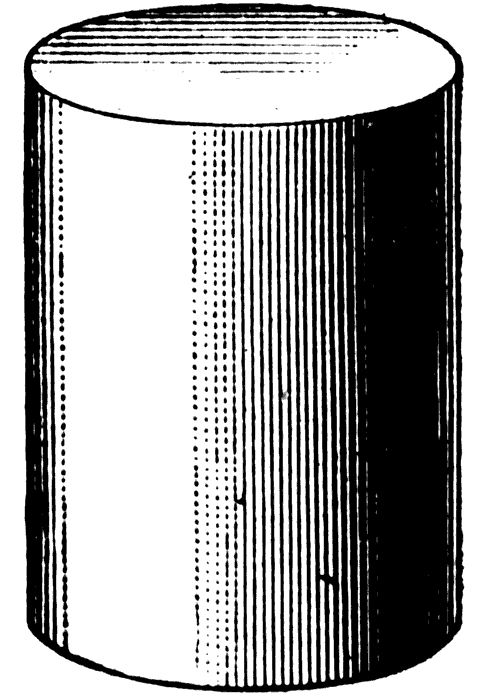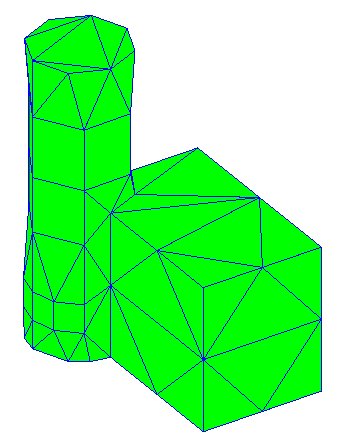|
|
LITR 5431
Literary & Historical Utopias
|
|
Angela Pennington
31 March 2019
The Utopian University
As I have been training to work as a
peer writing consultant with the University of Houston-Clear Lake’s Writing
Center, I have found a large overlap in the values espoused by both literary and
historical utopian societies and those which are championed by writing center
theorists. One of these shared values would be non-hierarchical relationships:
just as the communal anarchist Odonians in Ursula Le Guin’s utopian science
fiction novel The Dispossessed oppose
the socioeconomic stratification found in the capitalist society of Urras, so
writing center theory opposes the hierarchical relationship found between
university professor and student. Instead, modern writing center theorists such
as Irene Clark and Dave Healy propose a utopian peer-to-peer exchange of ideas
which, sans evaluation and structured lesson planning, leads to “a rejection of
the current-traditional paradigm in favor of a process/collaborative,
student-centered approach” (33). This is in direct objection to the dystopic
essay chop-shops of writing centers past, “deemed by the academy an unfortunate
but necessary supplement to the more important scholarly instruction that
occurred in the classroom” (Clark and Healy 33). The utopian writing center
seems achievable, and many writing centers are striving toward creating an ideal
communal space for the writers within. The writing center, however, is only one
small part of a larger institution, the university. The utopian university
certainly seems more ambitious than the utopian writing center. The university,
after all, contains multiple organizations within itself, all which would need
to be in their ideal state individually, but also within a harmonic, communal
working order that allows for the university to function as a unified whole. In
this research post, then, I chose to explore theories of the utopian
university—how do philosophers of higher education envision the ideal academy?
If utopian literature works to improve
upon the author’s country’s institutions, then the literature of educational
philosophy does similar work in improving the current state of education. For a
theory of higher education to qualify as utopian, it must both address a problem
with the current state of the university and propose a solution to the problem
in the form of a higher education community comprised of individuals with shared
ideals that are actively striving toward achieving those ideals. One such
solution is proposed by Ronald Barnett, Emeritus Professor at the Institute of
Education in the University of London, in his article “The Coming of the
Ecological University.” Before defining the ecological university, teased as
“the best kind of university that we can hope for under contemporary conditions,”
Barnett outlines past concepts of utopian universities. First,
the metaphysical university, “an institution that, through the learning and
inquiry that it sponsored, gave access to a transcendental realm” (440-1). Barnett
notes that this university “certainly offered forms of knowing rooted in this
world but they were fundamentally forms of knowing that opened a new and
transcendent set of experiences”; in practice, however, it was limited by its
association with the “particularly stratified society . . . . So the metaphysical idea
was one that both held out the promise of universal salvation and yet was
available only to a select minority” (441-2). The next type of utopian
university Barnett points to is the research university, where focus
shifted from “scholarship and learning to knowledge and research” (442).
However, this type of university privileged science in practice, and so “the
humanities were marginalized” (Barnett 442). Another issue that Barnett assesses
with this university was its impracticality: “researchers could, without
embarrassment, declare their disinterest in any applications of their findings .
. . .
The research university proclaimed a belief—even if it did not believe in its
proclamation—in the uselessness of knowledge” (443). Certainly a university of
this sort can be considered utopian to those academic researchers who find
pleasure in this isolated state; however, this is a very limited population
within the larger educational community. Antithetical to the idea of the
research university, Barnett notes, is the entrepreneurial university, wherein
the university’s focus is ability to produce capital gain on its knowledge
(444). This university, in mimesis of the capital market, would find itself a
competitive environment in all subjects; however, in this competition, Barnett
argues, “The collective academic
community fades” (445). Thus, all of these utopian visions are proven by Barnett
to be impractical, perhaps good places for those select few who can reap their
benefits, but overall resting atop the damaging hierarchies that exist within
modern society as opposed to challenging these hierarchies.
These past utopic visions are discarded
by Barnett in favor of the ecological university, “a university that takes
seriously both the world's interconnectedness and the university's
interconnectedness with the world” (451). This university would center on its
role in curating students as “global citizens” who “come to have a care or
concern for the world and to understand their own possibilities in the world and
towards the world” (Barnett 451). Members of the ecological university—students
and professors alike—would tackle such problems as “disease, illiteracy and
unduly limited education, climate change, dire poverty, lack of capability and
basic resource, misunderstandings across communities, excessive use of the
earth's resources, energy depletion and so on” (Barnett 452). The ecological
university would work to “bring about a sustainable world; and here,
sustainability would be understood generously to include personal and social
well-being as much as physical and material well-being” (Barnett 454). Looking
at the practical, how does the University of Houston-Clear Lake fit into the
ecological university model? In addition to hosting regular conferences on
environmental affairs, the university also offers volunteer opportunities in
community service (“Community Service”). The webpage notes that “These
opportunities increase your awareness, and understanding of community needs and
social responsibility” (“Community Service”); however, on examination of the
organizations, the goal of community service seems obscured. Groups such as
Clear Lake Anime Watchers, the American Marketing Association, and Chess Club,
all seem to be clustered with perhaps more Barnettian societies such as Clean Up
Your Act—an organization “to promote and contribute to creating a clean and
healthy ecological environment” (“Community Service”).
Another concept of the utopian
university has been theorized by Aaron Stoller, director of academic programs at
Colorado College. On the shoulders of John Dewey’s classical pragmatism, Stoller
outlined his view for the academy in his article “The Flipped Curriculum:
Dewey’s Pragmatic University”. One of Stoller’s major criticisms of the modern
university is the current view of curriculum as a map:
From a Deweyan perspective, this view of the curriculum
is grounded in three central philosophical mistakes. The first is the assumption
that a discipline (i.e. the ‘‘terrain’’) is an ordered body of objective
epistemic material. The second mistake is the view that the aim of curriculum
(i.e. the ‘‘map’’) is to distill and transmit the epistemic products produced or
deployed in the discipline. The third mistake is its view of the mind as a
representational system. (455)
The “curriculum as a map” metaphor, for Stoller,
symbolizes the closed-system of knowledge transfer, from past learning to
present students, that holds back the modern university from addressing societal
problems of consequence. In the utopian pragmatic university, Stoller argues,
“The purpose of the curriculum is about gaining deep, embodied familiarity for
our environment, the cultivation of critical agency, and sparking passionate
desire to create meaningful change” (455). This ties in to Barnett’s view of the
ecological university as one that sees its role in the greater context of its
society. Stoller continues that “The curriculum, in other words, should be an
emergent pathway of hermeneutic growth through and within which one might
reconstruct self and world,” suggesting that the curriculum as map be
transformed into “the curriculum as question, in which the students organize and
engaged courses and experiences around a central, emerging process of inquiry”
(456).
Much like Barnett, Stoller sees the
university’s role as cultivating students for citizenship in the world’s
ecosystem. Stoller claims:
Without the capacity to problematize ambiguous
situations, work empathetically, imaginatively, and collectively, and creatively
integrate a wide range of knowledges and practices, the next generation will be
simply unprepared to face the challenges presented by the contemporary world:
global climate change, systemic poverty, water access, and the fact that the
carrying capacity of the earth will soon be exhausted. (463)
The university, then, cannot be isolated. If it is to be
utopian, then it is to disseminate its utopian ideals through the students who
go on to become participants in the world outside of the university. Stoller
finishes by acknowledging “The central challenge of the pragmatic university,”
that is, “designing institutional architectures that are not only radically
holistic but that connect a student’s emerging concerns to learning environments
that empower authentic participation in inquiry and reconstructive action”
(463).
Are our universities designing these institutional
architectures? Stoller, in his article, claims that “The role of educational
theory and practice is to design institutions that catalyze and sharpen a
student’s ability to confront, inquire into, and collectively change reality for
the purposes of meaningful growth” (454). Similarly, before explaining his
concept of the ecological university, Barnett writes:
As I see it, the task ahead is to develop
feasible utopias. That is to say, it
is to develop ideas not as to how the
university might be in the best of all possible worlds, but rather how it might
be its best in this world. Such ideas
would be utopian in that they would
be unlikely to be realized given the empirical character of the world, with its
power structures, interests and ideologies. On the other hand, such ideas would
also be feasible in that we can identify instances of those ideas being
instantiated to a certain extent—at least, embryonically—in the world even now.
(440)
Barnett’s concept of a “feasible utopia” is important in
not only the study of a utopian university, but the study of utopias at large.
While a utopia is certainly an ideal state—that which perhaps can only exist as
a concept—utopian ideals can and should drive our modern practices. While we
will likely never secede from the United States of America to found a state like
Ernest Callenbach’s Ecotopia, many of the practices of that ecological utopia
have been adopted in our current world because, by Callenbach’s own admission,
“Ecotopian ideas, almost by their very nature, come up from the bottom. They’re
not the kind of thing that somebody sitting in Washington gets an idea and says,
‘Aha, let’s all live like Ecotopians, that’ll be terrific. It’s people living
their daily lives” that generate change. In that way, though we recognize the
utopian university as ideal, we as students, educators, and administrators can
perhaps use some of the concepts of these utopian universities in practice to
create our own feasible utopias.
Works Cited
Barnett, Ronald. “The Coming of the Ecological
University.” Oxford Review of Education,
vol.
Callenbach, Ernest. “ECOTOPIA Then & Now.”
YouTube, interview by James Heddle,
Apr. 6,
Clark, Irene L., and Dave Healy. "Are writing centers
ethical?" WPA-LOGAN, vol. 20, no.
1/2,
“Community Service.”
University of Houston-Clear Lake,
Student Leadership, Involvement and
Stoller, Aaron. "The Flipped Curriculum: Dewey’s
Pragmatic University." Studies in
Philosophy




